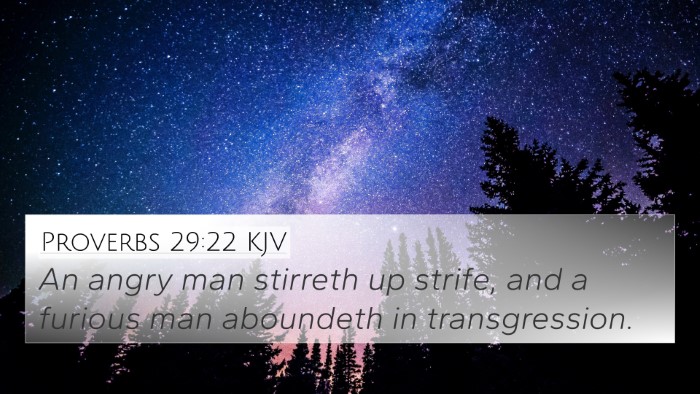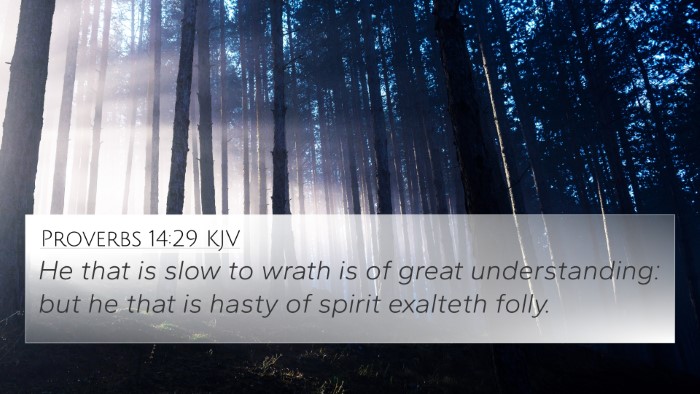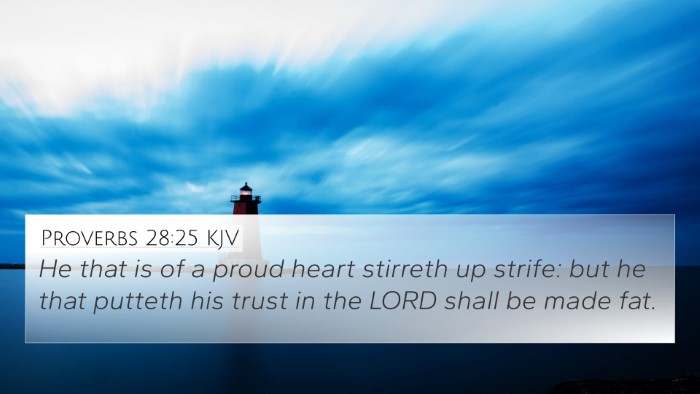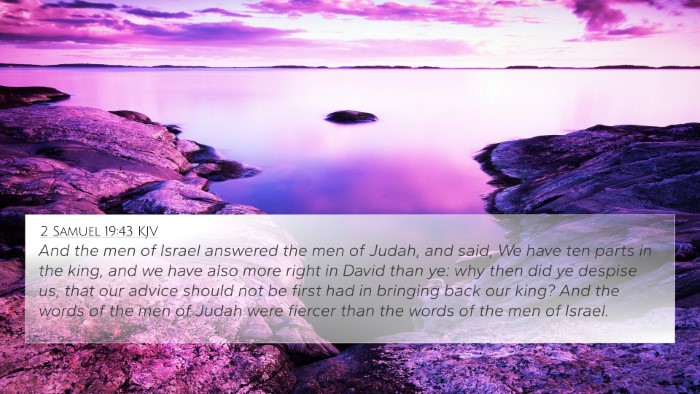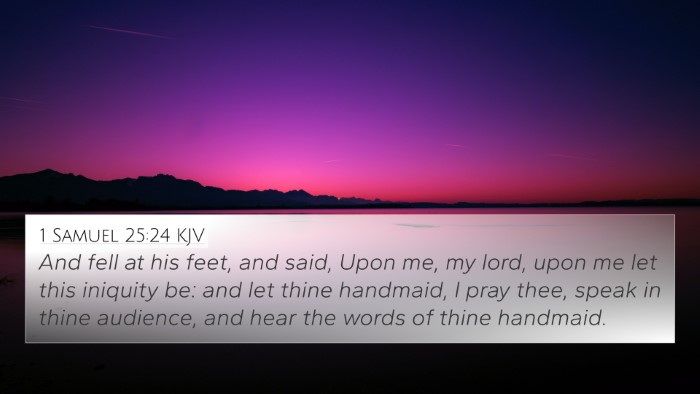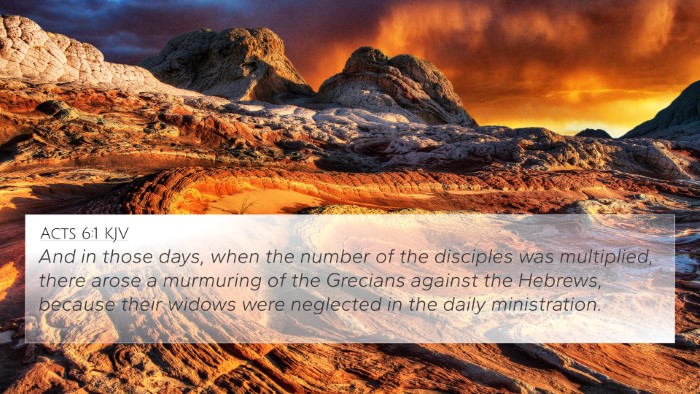Understanding Proverbs 15:18
Proverbs 15:18 states, "A hot-tempered man stirs up strife, but he who is slow to anger calms a dispute." This verse encapsulates the wisdom of managing one's temper and the impact of emotions on interpersonal relationships.
Summary of Meaning
This verse contrasts two types of individuals: the hot-tempered person, who exacerbates conflict, and the patient individual, who promotes peace. The implication is clear: emotional self-control is crucial for resolving disputes and fostering harmony.
Insights from Public Domain Commentaries
Matthew Henry's Commentary
Matthew Henry emphasizes that anger is a natural emotion, but its mismanagement leads to strife and discord. He points out that a "hot-tempered man" not only harms others but also himself, as anger bears negative consequences. Contrarily, a person who remains calm in the face of provocation mirrors divine wisdom and exhibits restraint that leads to resolution.
Albert Barnes' Notes
Barnes notes that the verse succinctly illustrates the principles of emotional maturity. He highlights that the "man of fury" tends to escalate situations, while those who exhibit patience facilitate peace and understanding. Such individuals become instrumental in conflict resolution, earning respect and affection in their communities.
Adam Clarke's Commentary
Clarke elaborates on the effects of anger, suggesting that it can be corrosive, leading to ongoing disputes. He encourages cultivating a spirit of patience and demonstrating a calm demeanor as ways to effectively navigate conflicts, attributing this demeanor to spiritual and moral strength.
Bible Verse Cross-References
Proverbs 15:18 connects with various other verses that highlight the themes of anger and peace:
- James 1:19-20: "Let every person be quick to hear, slow to speak, slow to anger; for the anger of man does not produce the righteousness of God."
- Proverbs 14:29: "Whoever is slow to anger has great understanding, but he who has a hasty temper exalts folly."
- Ephesians 4:26: "In your anger do not sin: Do not let the sun go down while you are still angry."
- Proverbs 29:22: "A man of wrath stirs up strife, and one given to anger causes much transgression."
- Proverbs 16:32: "Whoever is slow to anger is better than the mighty, and he who rules his spirit than he who takes a city."
- Colossians 3:8: "But now you must put them all away: anger, wrath, malice, slander, and obscene talk from your mouth."
- Philippians 4:5: "Let your reasonableness be known to everyone. The Lord is at hand."
Thematic Bible Verse Connections
Proverbs 15:18 can be viewed within a broader biblical context that emphasizes the importance of self-control and peacemaking:
- Matthew 5:9: "Blessed are the peacemakers, for they shall be called sons of God."
- Romans 12:18: "If possible, so far as it depends on you, live peaceably with all."
- 1 Peter 3:9: "Do not repay evil for evil or reviling for reviling, but on the contrary, bless, for to this you were called, that you may obtain a blessing."
Practical Application
Understanding Proverbs 15:18 aids in recognizing the destructive potential of unchecked emotions. Here’s how to apply this wisdom practically:
- Self-Reflection: Regularly assess your emotional responses in various situations.
- Practice Patience: Engage in techniques that help cultivate patience, such as mindfulness.
- Conflict Resolution: Use calm dialogue to address disagreements rather than escalating tensions.
- Seek Wisdom: Turn to scripture for guidance and insight in times of anger.
Conclusion
Ultimately, Proverbs 15:18 encourages believers to strive for emotional regulation and reconciliation in their relationships. Aligning this verse with others can enhance understanding and provide a comprehensive framework for cultivating peace in a world often filled with turmoil.
Additional Resources
- Bible concordance: A tool for finding topics related to anger and patience.
- Bible cross-reference guide: Assist in identifying relationships between scriptures.
- Comprehensive Bible cross-reference materials: To deepen study on related themes.
Further Study on Cross-Referencing Bible Verses
Utilizing cross-references in scripture allows for a deeper understanding of biblical themes and ensures connections between the Old and New Testament are recognized. Methods for effective cross-referencing include:
- Identifying connections: Explore how verses relate through themes of anger and peace.
- Comparative studies: Analyze verses that offer complementary insights into managing emotions.
- Making thematic links: Draw parallels between accounts in the Gospels and teachings from Proverbs.





